Turkey protests: Erdogan in 'final' warning
- Published
Quentin Sommerville reports from Gezi Park: "The mood here in the park still remains defiant"
Turkish Prime Minister Recep Tayyip Erdogan has issued a "final warning" to protesters to leave Gezi Park in central Istanbul.
"Our patience is at an end. I am making my warning for the last time," he said.
A group representing activists from the park is on its way to Ankara for a meeting with Mr Erdogan due to begin at 23:00 local time (20:00 GMT).
Clashes between police and protesters in the park and adjoining Taksim Square have continued for nearly two weeks.
The meeting between Mr Erdogan and the delegation from Gezi Park has been described as a "last-ditch" attempt to defuse the situation.
Activists have said they will not leave until the government abandons plans to redevelop the park. Mr Erdogan's party has proposed a referendum on the issue.
Such a vote would not be legally binding but Mr Erdogan implied he would honour its outcome.
"I say to the mothers and fathers, please take your children in hand and bring them out," Mr Erdogan declared.
"We cannot wait any more because Gezi Park does not belong to occupying forces but to the people."
His speech at a meeting of his ruling AK Party (AKP) in the capital, Ankara, received a standing ovation.
'Extremists'
Gezi Park is a rare patch of green in Turkey's biggest city, and has been the focus of public anger.
Plans to redevelop it into a shopping centre were the initial spark for the protests.
The prime minister has previously branded the protesters there "extremists" and "looters", and said the demonstrations have been encouraged by foreign forces to undermine Turkey and its economy.
The suggestion of a public vote on the park's future is unlikely to appease many of the protesters still encamped there.
"There is already a court decision which orders the suspension of work in Gezi Park," said Tayfun Kahraman from Taksim Solidarity, one of the environmentalist groups fighting to save the area.
It was not even legal to consider a referendum on such an issue, since such votes could only be held on constitutional matters, he added.
"Are they going to ask us whether we approve of chopping down trees? What would the result change anyway?" 22-year-old student Arzu told AFP news agency.
Protests in Taksim Square since 1 June
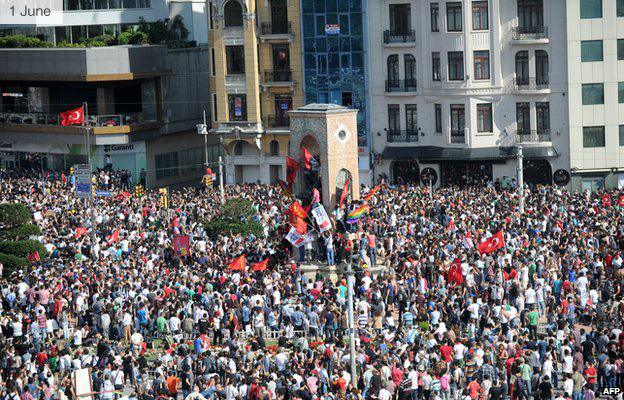
1 June: Taksim Square becomes focus for protests over the development of Gezi Park after clashes with police.
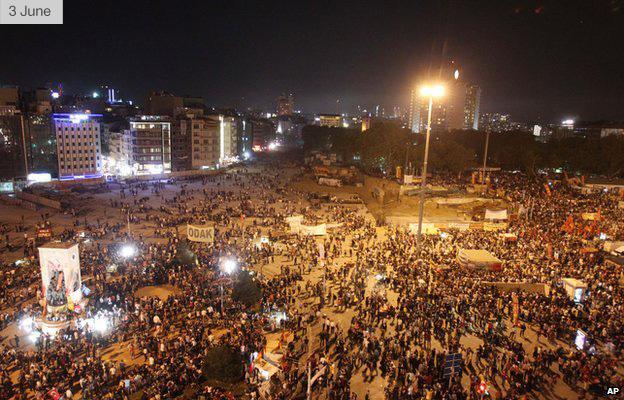
3 June: Protesters establish camps in Taksim Square with makeshift facilities, from libraries to food centres.
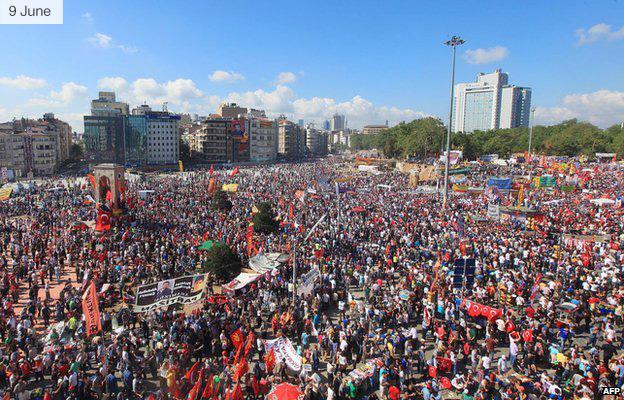
9 June: The protests continue for a 10th day, with thousands gathering in central Istanbul and other cities.
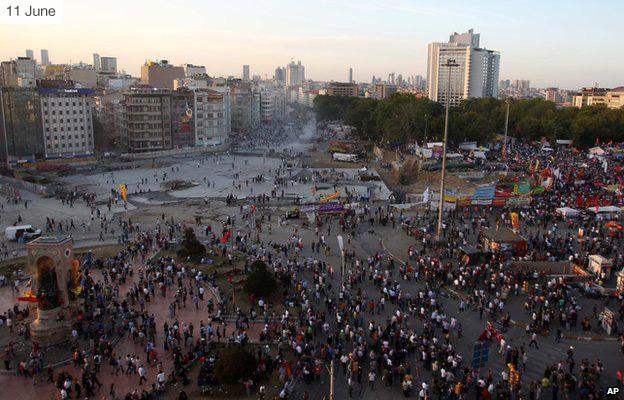
11 June: Turkish Prime Minister Recep Tayyip Erdogan warns he will not show any more tolerance.
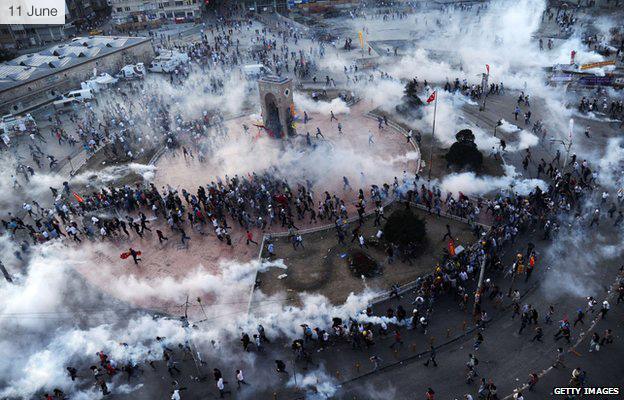
11 June: Protesters clash with police, who use water cannon, tear gas and rubber bullets to clear the area.
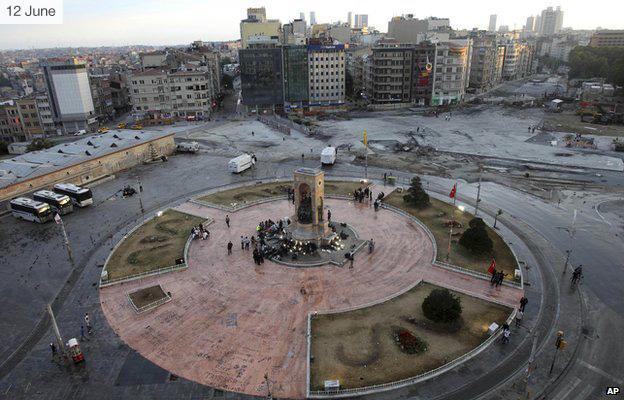
12 June: Morning sees Taksim Square empty of protesters. Some regrouped near Gezi Park and others gathered in the square again on Wednesday evening.
It is not yet clear what failing to heed Prime Minister Erdogan's "final" warning would mean for the protesters.
Some of those camped in the park have been waiting for news from city governor Huseyin Avni Mutlu, who has been assuring them for several days that police will not intervene, while urging them to leave so that "police can tackle marginal groups".
Several riot vehicles are still on standby in Taksim - a sign that police have no intention of abandoning the square they stormed on Tuesday.
Protesters fought back then, using stones and Molotov cocktails in reply to the police's tear gas and water cannons.
'Who do you think you are?'
The police crackdown on protesters has drawn international concern, especially from Europe.
On Thursday, the European Parliament passed a non-binding resolution, external that "deplores the reactions of the Turkish Government and of Prime Minister Erdogan, whose unwillingness to take steps towards reconciliation, to apologise or to understand the reactions of a segment of the Turkish population have only contributed to further polarisation".
The resolution also "warns the Turkish Government against taking harsh measures against the peaceful protesters, and urges the prime minister to take a unifying and conciliatory position so as to avoid any further escalation".
Mr Erdogan reacted angrily shortly before the resolution was passed.
"I won't recognise the decision that the European Union parliament is going to take about us... Who do you think you are by taking such a decision?''
Five people have died and thousands injured since the protests began on 31 May.
- Published13 June 2013
- Published13 June 2013
- Published12 June 2013